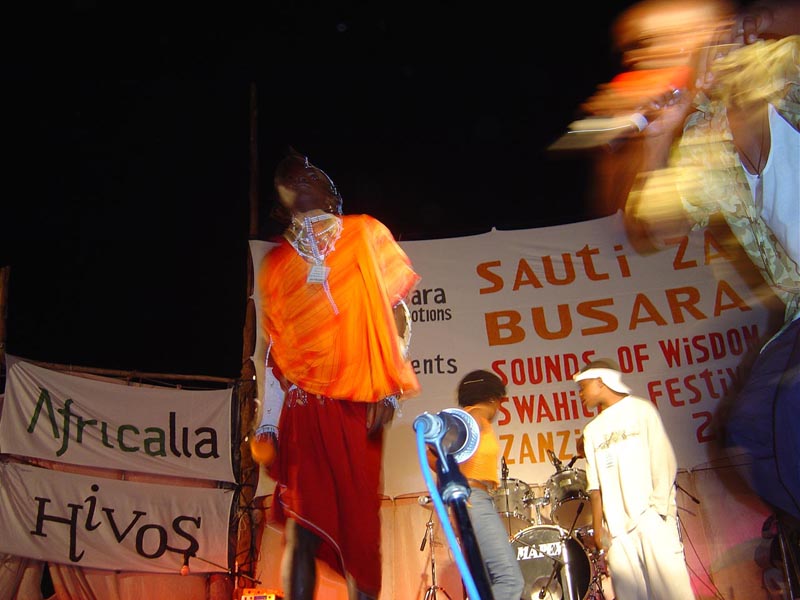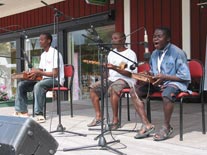Results: 17 to 22 of 22
Oya Theatre Group
Opportunity for Young Artists (OYA) Theatre Group was formed two years ago under the guidance and direction of their charismatic leader Omari A Kosmas. Their major concerns are to improve the quality and creativity in the playing of Tanzanian traditional music, and to inspire and assist young upcoming artists. The read more
Saki Stars
Headed by the charismatic Salome Kiwaya (director/composer/lead vocals), Saki Stars band was formed in 1992 and is based in Dodoma (central Tanzania) with twelve musicians.
Saki Stars is entertaining whilst educational and their songs draw on a diverse range of traditional and contemporary musical influences from around the African Continent and read more
Swahili Encounters
Every year, during the week leading up to the festival, Sauti za Busara, in collaboration with the Dhow Countries Music Academy (DCMA), provides a great opportunity for local and foreign artists to come together, create unique sounds, practice joint, and finally. Performing together as a complete band.
Swahili Encounters 2024 read more
Willom Tight and the Tight Family
Willom Tight & Tight Family are one of Zimbabwe's most vibrant groups who are causing a major stir on the market and on stage. The group has shared the stage with many of southern Africa's leading musicians including Jabu Khanyile, Oliver Mtukudzi and others. The group has released two successful read more
X Plastaz
In the vibrant Tanzanian hiphop scene, the group X Plastaz is a group commanding much respect. Their conscious Swahili rap lyrics strike a chord with the Tanzanian youth, who can relate to their topics like Aids, unemployment, divorce and even life in prison. The six vocalists are known internationally for read more
Yange Yange Trio
Yange Yange Arts is a Wagogo cultural group from the central Tanzanian region around the city of Dodoma. Tanzania has some 120 ethnic groups, none of which accounts for more than a few percent of the overall population, so there is no dominant ethnic culture or sound. That said, the read more

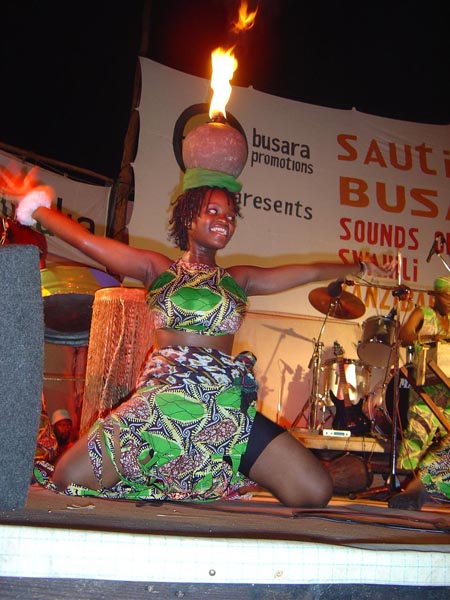
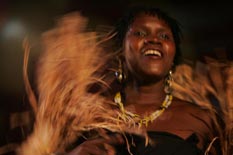
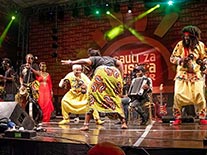
.jpg)
